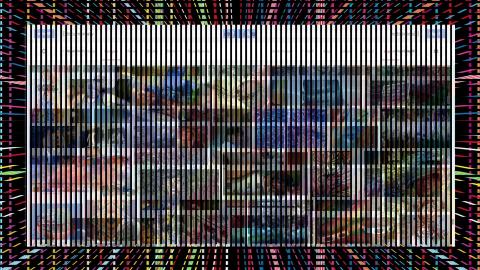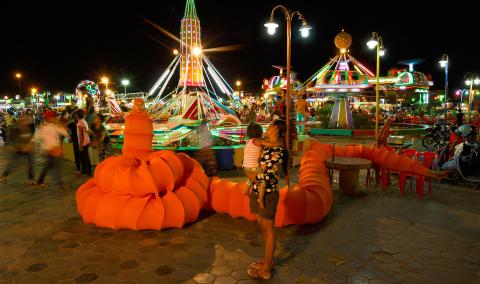Lav Diaz
APT8
Born 1958, Datu Paglas, The Philippines
Lives And Works In Manila, The Philippines
Lav Diaz is one of the leading figures of contemporary cinema, celebrated for his ambitious films that explore the social and political history of the Philippines. Diaz is also heralded as the most active proponent of 'slow' or durational cinema. Running between 4 to 12 hours, and made with the freedom afforded by digital technologies, Diaz's films describe the everyday with an epic scope. Intensely poetic and beautiful, Diaz's works have addressed the era of martial law under Ferdinand Marcos (1965–86); the revolution against Spanish colonial rule; and the devastating aftermath of Typhoon Haiyan in 2013.

Lav Diaz / The Philippines, b.1958 / Production still from Norte, hangganan ng kasaysayan (Norte, the End of History) 2013 / HD video transferred to DCP, colour, stereo, 250 minutes, Philippines, Filipino/Tagalog/English (English subtitles) / Image courtesy: The artist and Moria Lang, Manila / © Lav Diaz
APT8 CINEMA
'I would go to any extent in my art to fathom the mystery of humankind's existence. I want to understand death. I want to understand solitude. I want to understand struggle. I want to understand the philosophy of a growing flower in the middle of a swamp.'
— Lav Diaz
Lav Diaz is one of the leading figures of contemporary cinema, celebrated for his intensely poetic and beautiful works exploring the social and political history of the Philippines. His films have dealt with the era of martial law under Ferdinand Marcos (1965–86); the revolution against Spanish colonial rule; and the devastating aftermath of Typhoon Haiyan in 2013. He is also heralded as the most active proponent of 'slow' or durational cinema. Running between 4 to 12 hours, his films derive a remarkable command from their use of duration, bearing witness to life with an epic approach more commonly associated with literature. For APT8, the Gallery presented 13 major works by Diaz constituting almost 70 hours of screen time — a commitment reflected in Diaz's own unwavering dedication to conveying the struggle of the Filipino people, or what he refers to as 'the Filipino psyche', as a reality experienced in real time.
QAGOMA thanks Lav Diaz; Epicmedia, Inc., Manila: Bianca Balbuena; Moira Lang, Manila; Sine Olivia Pilipinas, Manila: Hazel Orencio and The Austrian Film Archive, Wien: Adelheid Heftberger, for generously providing materials for this program.

